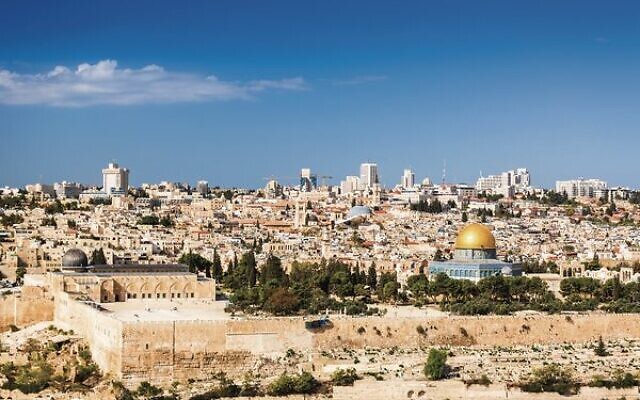What are we fighting for?
Defending Israel, its right to peace and security and to freely engage with the world, also means defending an idea. It is the idea that dispersed, colonised peoples can be free
For those of us who advocate for Israel in the Diaspora, the question of “why” we do what we do rarely arises.
Why do we defend a country in which we do not live? Why are we prepared to bear the online abuse and real-world threats such a life path entails? Few ponder these questions because that compulsion, that determination to defend Israel is so instinctive that it hardly requires rational explanation.
When Philippe Petit crossed between the twin towers in New York on a highwire untethered, the question every journalist asked him as he was bundled into a police car after completing his feat was “why? Why did you do it?” Petit replied, “why? There is no why.”
For us, the “why” is equally evasive and equally self-evident. But these questions need to be asked so that we may understand how to appeal to new generations and how we can become more effective in what we do.
When we defend Israel, we are in effect defending ourselves. Israel is an inescapable component of modern Jewish identity. It is not only the concept of indigeneity and historical and liturgical links that bind us. It is the reality that Israel was constituted to preserve Jewish life and safeguard and enlarge those things that are distinctly Jewish, and which are periodically expunged from the Diaspora. Israel is every Jew’s exit strategy. And if it is not, it ought to be. There is also the fact that Israel is home to more Jews than any other country and as demographic trends show, it will continue to grow as the Diaspora contracts. The notion of Jewish solidarity and mutual responsibility is a profoundly ingrained one and this compels us to care deeply for the fate of the largest Jewish community in the world.
Defending Israel, its right to peace and security and to freely engage with the world, also means defending an idea. It is the idea that dispersed, colonised peoples can be free; that they can survive in exile and one day return to reconstitute their national home. It is the idea that multi-faith, multi-ethnic representative democracy can survive in the Middle East. It is the idea that a lost language can be revived. That a decimated people can be made whole again.
These ideas are worthy of defence as any imaginable. Yet ideas can be discarded or superseded. This is why it is necessary to understand that Israel is more than an abstract bundle of ideas. It is a people and a land. A people of astounding diversity, defined by enterprise, generosity and fortitude. The idea is worthy, but its people are worthier still.
This is also a people that lives with a burden that no other nation has to bear. The threat of terrorism on its streets; the spectre of war orchestrated by a regime intent on its annihilation; and coordinated campaigns in the West to blacken its name, turn public opinion against it, thereby undermining its ability to function and exist.
The land of Israel, cultivated and enriched by the toil and sacrifice of its people is utterly mesmeric. The city of Jerusalem exists on a higher plane to all worldly possessions. It has a serenity that replenishes the soul and an energy that brings on peculiar moods in rapid sequence. I write this from a balcony in Jaffa overlooking the Tel Aviv skyline and the Mediterranean Sea with the bell tower of St Peter’s Church at my right shoulder emitting its chimes with an unnerving frequency.
I need not catalogue the cornucopia of sacred hills and valleys, archaeological splendours, crumbling forts, biblical relics, shuks and wadis of which this country is composed. Israel is the most spectacular 22,000 square metres on Earth and I would gladly raise my fists to anyone who would beg to differ. It is a land that is holy and promised which is why tranquil anonymity has never accompanied it.
It is because of the singular enchantment of this land and its people that the greatest tool of advocacy at our disposal is to bring people here. No one leaves Israel unchanged. This is why the anti-Israel movement has relentlessly sought to smear and discredit organised trips to Israel from Birthright to political delegations. They know that once people are shown Israel, there is nothing left to tell.
It is also why it is essential that advocates for Israel take every opportunity to come here. Coming to Israel deepens the bond and affirms what is at stake and what we have the privilege of defending – a land that is ours by right not sufferance and a people that inspire us to be better, strive harder and fight until the last breath.
Alex Ryvchin is the co-chief executive officer of the Executive Council of Australian Jewry. He was in Israel for the Global Coalition for Israel conference in Jerusalem.


comments